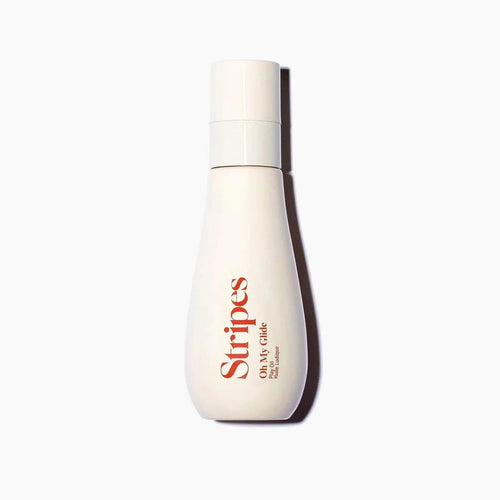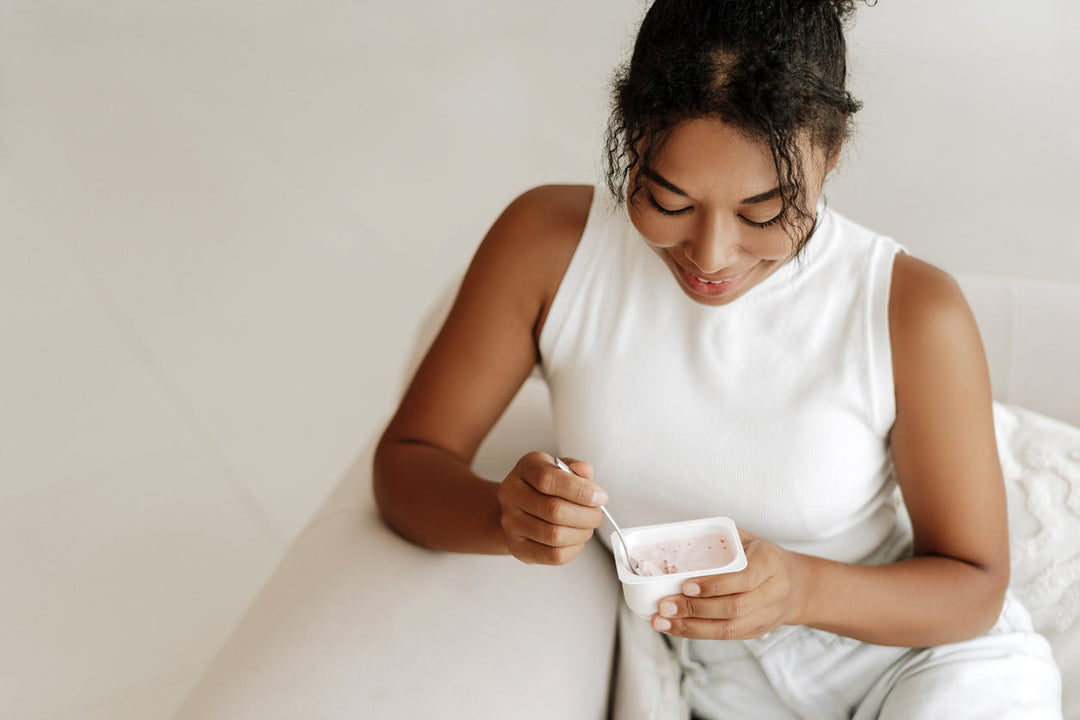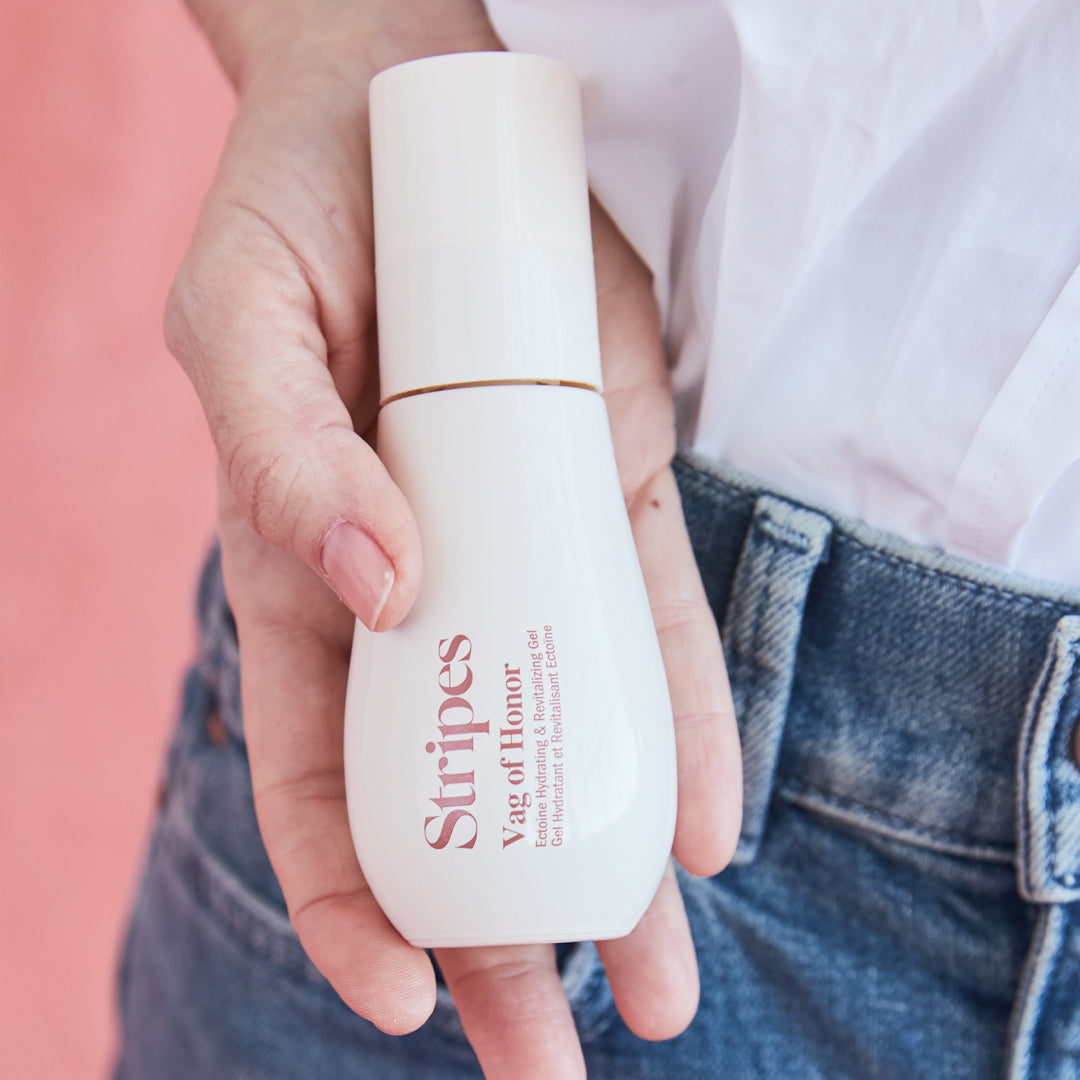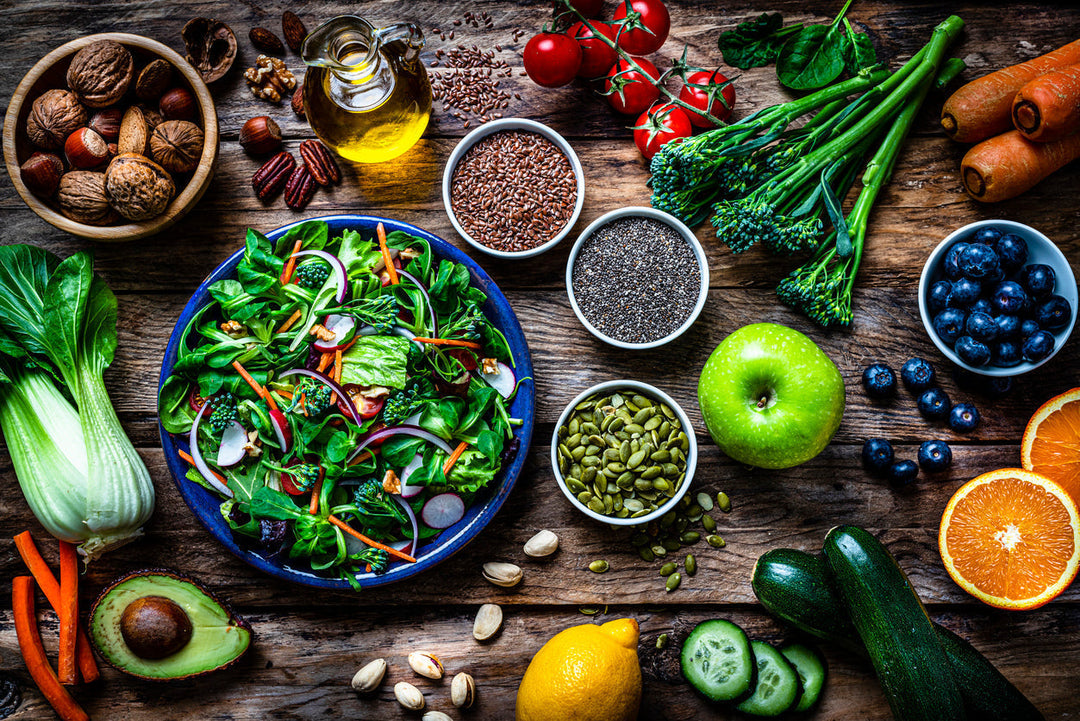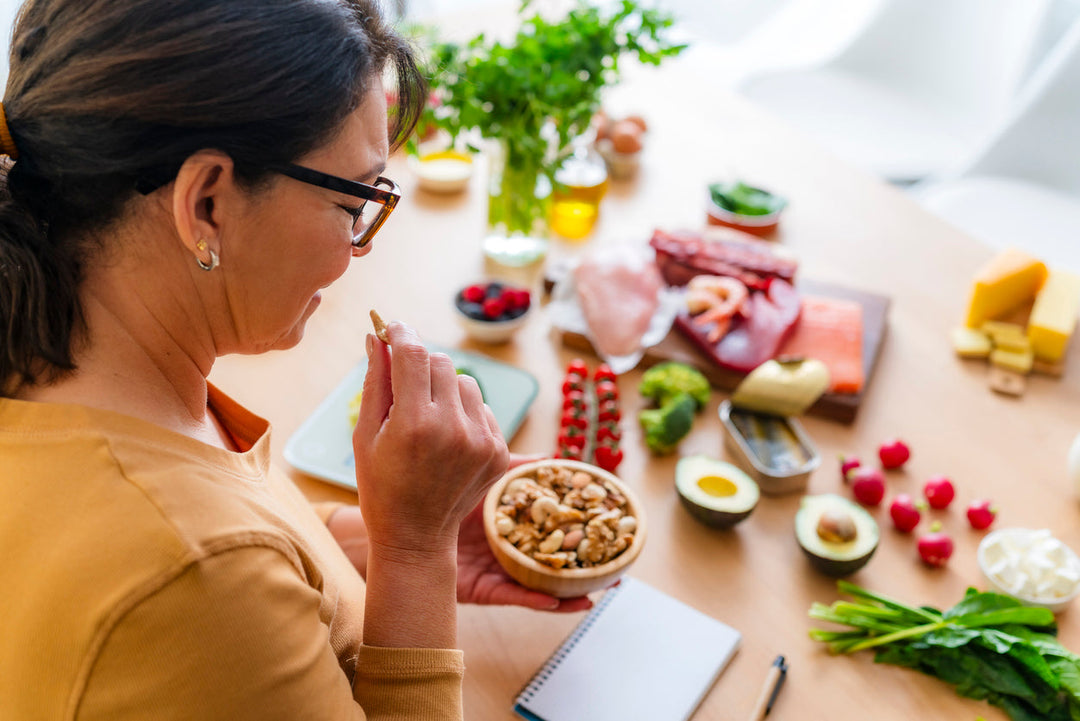The 10 Best Foods for Vaginal Health (That Taste Great, Too)
If you’ve ever cured a yeast infection by eating yogurt, you know all too well that certain foods are good for vaginal health. And if you’re navigating perimenopause or menopause, eating the best foods for vaginal health becomes even more important. So, if you’re looking for a handy list of what to eat, you’re in the right place. Let’s dive into some delicious, feel-good options that support balance, moisture, and overall wellness.
1. Yogurt and other probiotic foods
You’ve probably heard probiotics are good for your gut — but guess what? They’re amazing for your vagina, too. Yogurt, kefir, kimchi, sauerkraut — these all help maintain the right balance of bacteria (hello, Lactobacillus) to keep your pH in check and ward off annoying infections like yeast or BV.
2. Garlic
It’s not just a flavor booster — garlic has legit antibacterial and antifungal powers. Regularly adding it to meals might help fend off yeast infections, which can become more common during perimenopause when hormones start shifting.
3. Cranberries
Yep, they’re more than just a Thanksgiving side. Cranberries (especially the unsweetened kind) can help prevent UTIs and keep your urinary and vaginal walls clear of harmful bacteria. If you’re postmenopausal and dealing with recurring UTIs — this is one to keep on rotation.

4. Leafy greens
Think kale, spinach, collards — all the green stuff. These are loaded with nutrients like magnesium and folate that support blood flow and tissue health, which your vagina loves, especially as estrogen levels start to dip during menopause.
5. Avocados
Creamy, dreamy, and good for your libido? Yes, please. Avocados are rich in healthy fats and B6, which help with natural lubrication and sexual desire. Super helpful when you’re dealing with dryness thanks to hormonal changes.
6. Sweet potatoes
These guys are packed with beta-carotene and vitamin A — both essential for keeping vaginal and uterine walls strong and healthy. They’re especially good during perimenopause when your body’s going through a lot of hormonal changes.
7. Flaxseeds
Flaxseeds are tiny but mighty. They contain omega-3s and phytoestrogens, which help balance hormones and ease symptoms like vaginal dryness. Just sprinkle them on oatmeal or toss them in a smoothie.
8. Apples
Surprise! Apples have compounds that may improve sexual function and support tissue tone. If you’re in or approaching menopause, adding apples to your snack game is a sweet (and easy) win.
9. Soy products
“Of the different forms of phytoestrogens, the isoflavones (soy products) have been the focus of most research because they are the highest in phytoestrogen levels,” explains Stripes Advisory Board Member Cindy Meston, Ph.D, professor of clinical psychology and Director of the Sexual Psychophysiology Laboratory at the University of Texas at Austin. However, she caveats this by saying it’s still significantly less than estrogen the body produces on its own, and you have to eat a lot of soy to reap the benefits. Tofu, edamame, and soy milk are your best bets.
10. Water
It’s not technically food, but water is a must. Staying hydrated supports natural lubrication and keeps everything down there functioning smoothly — especially important during menopause, when dryness becomes more common.
So, What’s the Takeaway?
You don’t need to overhaul your whole diet, but adding a few of these best foods for vaginal health into your regular meals can make a real difference. Think of them as your body’s support team — working behind the scenes to keep everything balanced, comfortable, and thriving.
As always, it’s important to consider your own dietary needs before making any big changes. Check with your doctor to see what foods may be best for your own vaginal health issues.



